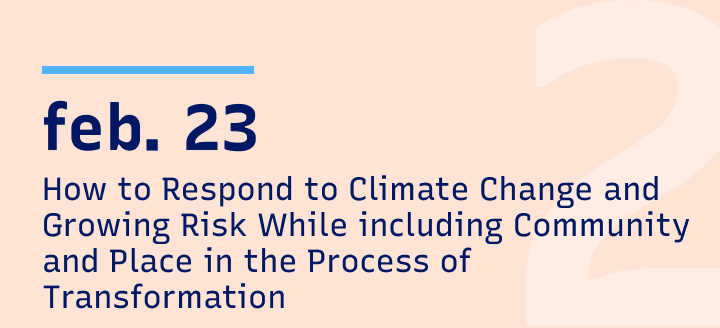

Resilient Communities
In-between Disasters
Venue: Cedar Key, UF IFAS Nature Coast Biological Station.
Objectives
(1) Teaching about community resilience through a hands-on exercise, (2) Performing a research walk to learn about field research, (3) Understanding how to use space and the built environment to elicit narratives of place.
Target Audience
This workshop is aimed at DCP and UF students interested in community resilience practices of disaster adaptation.
*There is no requirement to participate.
During the Workshop, we will use a mobile app to collect data around Cedar Key. Please find attached the instructions for downloading the app and how to use it. Get familiar with that before tomorrow, but please do not submit data yet.
09h15 – 10h30
Introduction
Welcome and context-setting for the workshop.
Lecture on the forensics of urban climate adaptation.
Presenting the app for field data collection (explain how it works, we can send instructions a few days before the workshop to the signed participants).
10h30 – 11h45
Learning by walking
Scenario walk with students organized along three or four stops.
Students will collect observational evidence of risk exposure and adaptation strategies applied to the built environment. Data will be collected using ArcGIS Fieldmaps.
11h45 – 12h00
Conclusion and Q&A
Visualizing the results of the exercise.
Reflecting on the connection between spaces and memories.
Reflecting on the role of communities in shaping their environment.
Adaptation and Transformation: Community-Led Stories of Positive Change
Venue: Cedar Key, UF IFAS Nature Coast Biological Station.
Objectives
(1) Introduce new perspectives and techniques for introducing positive change to communities, (2) Discuss examples of community-based activities towards turning risk and vulnerable situations into opportunities for transformation, (3) Promote a short “charette” aimed at dealing with climate change challenges through transformative design and visualization.
Target Audience
This workshop is aimed at students interested in documenting and preserving cultural heritage through environmental change and disasters.
* Recommended software for the workshop: Photoshop 2024 and Midjourney
12h30 – 13h30
Introduction
Welcome and context-setting for the workshop.
Lecture on Envisioning Future Adaptation in Communities
13h30 – 14h30
Scenario Planning
The morning workshops will center around three or four scenarios according to the input of the UF and U Cuenca communities. These same scenarios can be used to start a discussion on scenario planning.
The participants will be invited to describe the possible ways to conduct community envisioning (agent-based modeling, co-design, etc.)
We will create a workshop to promote a thought experiment about tackling climate change with positive approaches.
14h30 – 15h00
Conclusion and Q&A
We will show the workshop results as possible options to promote the perspective change.
Open forum for participant questions, insights, and feedback.
Whit Schroder is an Assistant Professor in the Department of Anthropology at the University of Florida (UF) and an affiliate faculty member with the Center for Latin American Studies and the American Indian and Indigenous Studies program. He received his Ph.D. in Anthropology from the University of Pennsylvania in 2019, joining the University of Florida as a postdoctoral Associate with the Florida Institute for Built Environment Resilience before becoming an Assistant Professor in 2023. Whit is an anthropological archaeologist interested in how communities shape their landscapes to address socioenvironmental crises. His work has involved the use of airborne remote sensing using lidar and multispectral satellite imagery to map archaeological landscapes and to track land cover change. Whit currently directs the Proyecto Arqueológico Bajo Lacantún (Lower Lacantún Archaeological Project) in Chiapas, Mexico to investigate the political ecology and resilience of Maya communities and political centers beginning at least 1,500 years ago in the fluvial environment of the Lacantún and Upper Usumacinta Rivers.
Is an urban theorist and urban storyteller with a background in architecture. Carl serves as the Assistant Director of the Florida Institute for Built Environment Resilience (FIBER)and Assistant Scholar at the School of Architecture at the University of Florida (UF). Brisotto holds a Ph.D. in Design, Construction, and Planning from UF and a Professional Architecture degree from the University IUAV of Venice. At the core of Carla’s research lies the intersection of urbanism and environmental narratives. Her research focuses on productive landscapes and climate change’s asymmetric impacts on population and their places through contemporary and historical lenses. Carla employs storytelling as a research method and works closely with communities within the Florida Resilient Cities Lab to understand the dynamics of spontaneous urban transformation. Currently, Carla is leading the international project “ReclaiMEDLand” funded by the Department of State of the United States of America, APS–Annual Program Statement 2023.